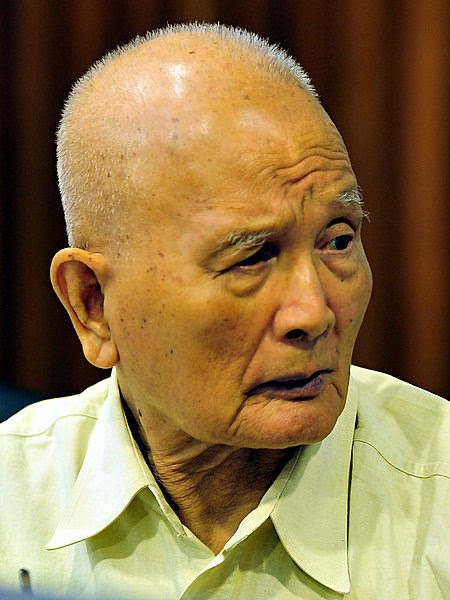Wednesday, 4 April 2018
Brexitwatch: a lesson from history - the Great Chinese Famine
Thursday, 7 August 2014
Two Khmer Rouge convicted of mass murder
Wednesday, 1 September 2010
Mao's great famine
A new book on the great Chinese famine of 1958-62 confirms the figure I use in A Disastrous History of the World – that chairman Mao was responsible for at least 50 million deaths. In Mao’s Great Famine, Prof Frank Dikotter concludes that the famine itself killed at least 45 million, and on top of that, of course, there was the Cultural Revolution, the reign of terror that established Communist rule in the first place etc.
Prof Dikotter battled tenaciously for access to Chinese archives, and exposes how the party ruthlessly used food as a weapon, punishing with starvation anyone who stood in its way. He says that the state terror was imposed so efficiently that no photographs are known to exist of the famine.
The disaster had its origins in two of Mao’s doctrines – the forced collectivisation of agriculture, even though this had been clearly shown to reduce food production, and the ‘Great Leap Forward’ – designed to catapult China into the big league of industrial nations.
It involved getting peasants to abandon the land to construct gerry-built dams (which often collapsed with catastrophic results) or make useless steel by melting down agricultural implements in backyard furnaces. While his people starved, Mao cut food imports and doubled exports – handing out free gain to North Korea, Vietnam and Albania. (See also my blogs of 6 Jan and 27 March 2009.)Saturday, 29 May 2010
Train terrorist attack?
An 18 inch section of track was missing. This derailed the Gyaneshwar Express passenger train in the Jhargram area about 90 miles west of Calcutta, causing five coaches to fall onto another track where they were rammed by a goods train.
The railways have often been selected as targets by terrorists in India. The most deadly attack came in Mumbai on July 11, 2006 when seven bombs exploded on trains during the evening rush hour. Islamic terrorists were blamed for the resulting deaths of 209 people.
Maoist terrorists were blamed for the derailment of the Rajdhani Express as it crossed a bridge near the town of Rafiganj in Bihar on September 10, 2002. At least 130 people were killed. An inquiry found the track had been sabotaged, but the rebels themselves denied being involved and some experts have cast doubt on the official explanation.
*Thanks for mentions on the following sites:-
http://www.myspace.com/martiarenax
http://www.belt.es/noticias/especial/Sistemas_emergencia/index.asp
http://www.para-web.org/viewthread.php?tid=903&page=3
Wednesday, 19 May 2010
India - Maoist rebels strike again
Then today, the rebels killed four paramilitary troops with a mine in West Bengal. Last October, the government deployed 50,000 troops in what it described as a “massive offensive” against them.
The Maoists are also known as "Naxalites" because they launched their uprising in the West Bengal village of Naxalbari in 1967. Today they have up to 20,000 fighters, and are active in eight states.
They claim to be fighting for the rights of indigenous tribespeople and the rural poor, and the length of time for which they have been able to maintain their rebellion is seen as proof that they enjoy a good deal of local support. It’s estimated that more than 6,000 people have been killed in the rebellion so far.
Monday, 5 October 2009
India - forgotten terrorism
The Maoists want to establish their own state and are active across large parts of central and eastern India. In their latest attack, they killed 16 people at a village in Bihar. A survivor, whose son died, said the assailants tied up the victims – labourers and poor farmers - then shot them. India’s Prime Minister has said the Maoists are now the most serious security problem facing the country.
Last month, one of their leaders, Kobad Ghandy, was arrested in Delhi. From a prosperous background, he was educated at one of India’s most exclusive schools and then trained as an accountant in London. According to friends, it was there that he became radicalised, denouncing India as "semi-feudal, semi-colonial".


